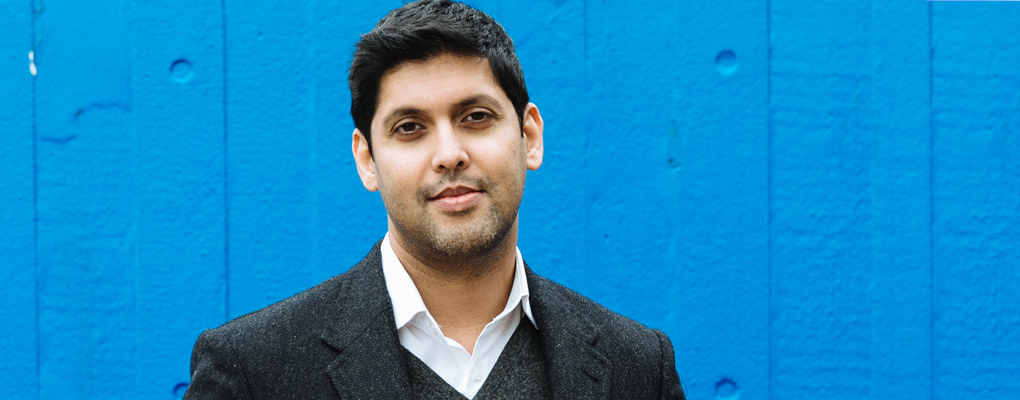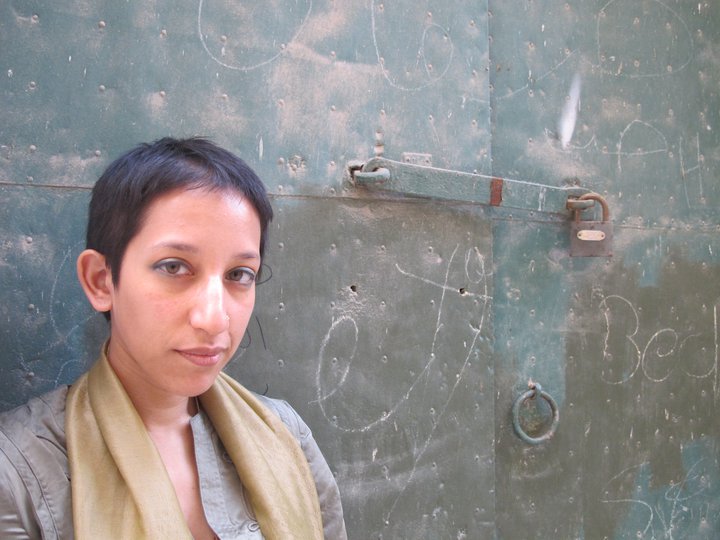Nikita Lalwani, author of Gifted, and winner of The Desmond Elliot Prize is my last and final interview of the weekend. I’m looking forward to it, naturally. Lalwani is amiable and approachable without being intimidating. I like that about her, she is definitely a natural and appears confident without having any air of arrogance about air. We talk about practically everything, from winning the Desmond Elliot prize, to juggling motherhood with writing, to having mentors and great friends…
Lalwani’s protagonist, Rumi is a child genius. I am keen to find out if Gifted was semi autobiographical, but Lalwani who is ever so humble explains: ‘I wasn’t a genius, I was introduced to maths at a very basic level, I was introduced to mental arithmetic, juggling numbers, messing about with that sort of maths to have concrete answers. I used to enjoy maths but I never really moved on with it but if I was to focus on maths then maybe it would become a weapon or a chance to be ahead of the game. So it sort of fascinated me in that way, so its (Gifted) an alternate history of what could’ve happened if I had really focussed on maths.’
One thing which has been prominent about this weekend at the SAMA Festival is how the Arts is one of those fields which doesn’t get parental approval, but Lalwani’s story is rather different. ‘I was encouraged to explore all things, read literature, maths, science, everything. My father used to read lots of Anglo-Indian writing, Russian writing, and seemed to have a lot of books on the shelves that I would read under the covers with a torch.’
She did however, decide to become a doctor. She says her decision to follow a career in Medicine was more to do with her own values of what she could do to make an impact in the world. Lalwani studied Medicine at Oxford University before being thrown out in the first year. She later studied English Literature at Bristol University before embarking on a career with the BBC.
‘I always wanted to be a writer, but I it didn’t fit in with the way I thought I could earn a living. At different stages of my life I never believed it, I think that’s part of the immigrant work ethic – you are always thinking how can I survive? How can I be solvent? You never want to go under.’
That’s ironic to me, and I tell her so, because of course, Lalwani made a surprisingly generous donation to the human rights organisation, Liberty – her entire £10,000 prize money from the Desmond Elliot Prize. I can help but to ask her why?
‘I thought the only way I could do that was if I was lucky enough to win an award. I said to my mum when I came home ‘cause she stayed with me that night. “I left home with empty pockets and I came home with empty pockets.” When you win an award you don’t own that money, so you’re able to do something with it. You don’t own it, two minutes before they announce it, so its like you never had it. I did feel it was important, and that they are important issues to make a stand on, and I wanted to make a gesture, to give whatever I could.’ She explains that she is lucky enough to have an advance to keep her afloat to write the next book. She appears even humbler to me at this moment and it amazes me that she brushes it off as she does, as if it was commonplace.
I bring up the matter of babies and ask Lalwani, how it’s changed her as a person. She describes her journey into motherhood as ‘so much clear and clean joy then I would have known before, I just felt that its bought such beauty into my life.’ Her daughter was born at the same time as the book was about to be published. ‘She was six days old when the proofs arrived and I was in bed and I opened the proofs and I had this tiny baby, like the size of my hand next to me. It’s been a wonderful thing and I have had to learn to reconstruct that mental image of a room of one’s own. I rent a shed around the corner and I write there now. I have set hours when I write whether that’s the next novel, or journalism, or campaigning stuff that I do. I’ve just written a piece for an Aids Anthology about Aids in India. I feel that the world has opened up since, I’ve become more open and self aware since she’s been born.’
I recall an inspiring article I read in The Independent last year, in a How We Met column. It featured Lalwani with Stephen Merchant, creator of The Office.
‘We met twelve years ago, we both started out at the BBC together and we were trying to work out who we were and form our identity, like what kind of artists we were and in terms of being a creative were are you going? I used to get very sucked into my day to day job at Changing Rooms and he was always like think of what you want to do and just do it. He dropped out before me and just started writing The Office and got that done. And on one level we’ve always had this dialogue, but we’ve always done and written different things. We came together with this interest in adolescent and teen life we always used to discuss that. There’s an overlap we always had a lot of discussion about coming of age, finding yourself as a teenager before you get to the adult world.’
I ask her if he was instrumental when she was writing Gifted.
‘He’s like a good friend with whom there can always be dialogue. During the writing of the novel, when I was writing the final section we’d often meet and just talk about what’s legitimate in that experience, what would Rumi do if she wanted to have a boyfriend? It was really basic, trying to work out things, and he was someone to bounce ideas off.’ But it is her mentor, Gerard Woodward which Lalwani pays tribute to. She says ‘whereas Stephen and I are friends, Gerrard was my mentor, he was Booker nominated a few years ago and I met him on a creative writing course I would just share work with him and he never really said this is how you write but when I left something would always click. A mentor is someone who makes you a better version of yourself in a way. I think mentors are very important but you could find them in all sorts of ways, they might not be the person you expect. Its very important you hunt them down.’ The first place she suggests in finding one, is who you’re reading. Woodward provided Lalwani a byline for the manuscript which she sent to agents.
Things happened very quickly for Lalwani at that point. Gifted was bought my Penguin within a matter of days and she is grateful for that. She describes to me that moment she was about to meet them for the first time, and her fears set in, they had already bought the book but she says: ‘I turned up to meet them afterwards and thought, Oh my God, they might think you know, here’s someone who can’t string a sentence together, she can write but she’s like a loner and socially awkward, or they might think we didn’t want this.’
We talk about advice she wished she’d ignored along the way, and of it there is plenty. She says, ‘I think I did ignore it, but I wished I’d listened to Stephen more, who used to say, ‘don’t be influenced by the nitty gritty and the politics around you, if you’re going to be intimidated by people, be intimidated by Joyce.’
So what advice would Lalwani give to wannabe authors? ‘To write, and write sincerely what you want to write and everyone can go to hell.’ She adds, let the book sell itself without having to worry about trends or what the market wants. Its great advice and certainly worked for her.

